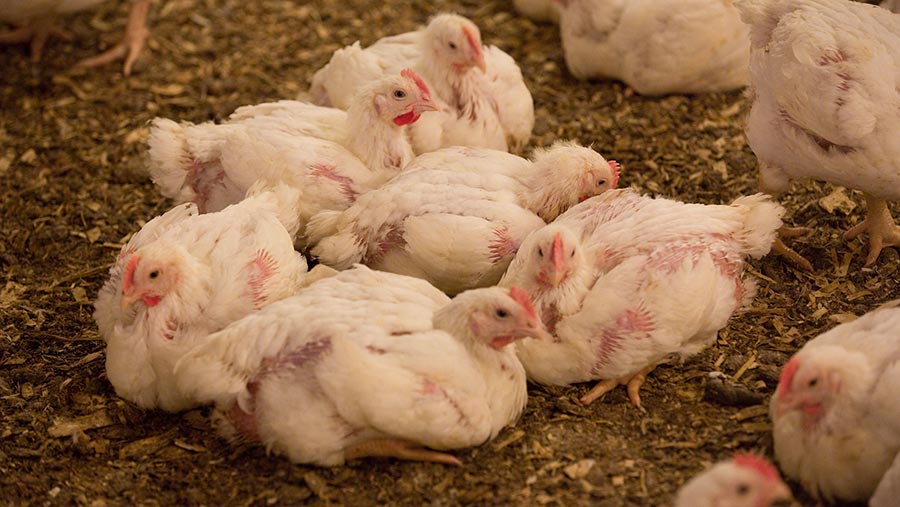Legal threat mounted to indoor broiler production
 © Tim Scrivener
© Tim Scrivener Indoor broiler production using faster growing breeds of chicken is to be challenged in the High Court, following the granting of a judicial review to an animal welfare group.
The Humane League UK argues that that the use of breeds which grow “unnaturally large, unnaturally fast” breaches the Welfare of Farmed Animals (England) Regulations 2007.
This states that “Animals may only be kept for farming purposes if it can reasonably be expected, on the basis of their genotype or phenotype, that they can be kept without any detrimental effect on their health or welfare.”
See also: How to respond to animal activists
The Humane League UK claims that, due to the way they have been selected for fast growth, modern broilers suffer too often from heart attacks, lameness, green muscle disease, hock burns and organ failure.
Claire Williams, campaigns manager at The Humane League UK, described the granting of a judicial review at the third attempt as “a big milestone for our case”.
“We have beaten the odds to present the horrific lives of fast-growing chickens to the High Court in full, and will strongly make the case that keeping these birds is wholly unlawful,” she said.
“These animals have suffering coded into their DNA, and we hope the justice system will rightly condemn that.”
Claims rejected
Such claims are rejected by Defra – the defendant in the impending case – which says it has no policy that condones any breaches of animal welfare standards.
Industry representatives have also been quick to defend the welfare record of the broiler sector.
British Poultry Council chief executive Richard Griffiths said the potential risks were well understood and had been addressed by broiler growers over many years.
“Health and welfare is a developing science and we are learning more year on year,” he said. “But the industry manages the risks effectively and I believe the Humane League is overplaying it.”
The Humane League is also keen to promote the Better Chicken Commitment, which requires the use of slower-growing birds at lower stocking rates from 2026.
A number of food companies and retailers, such as KFC, Nando’s, M&S and Waitrose, have already signed this, though it remains a target, rather than something they have actually implemented.
Mr Griffiths said that lower stocking rates are “a direction of travel” being discussed by the industry, but this had to be weighed up against the need for affordable food and the fact slower-growing birds had a greater environmental impact.
“These birds require more farms, more land, more feed and more water, so come at a higher cost, both financially and environmentally,” he said.
